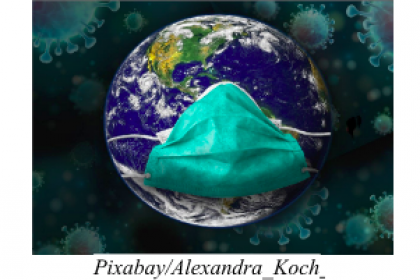Post-Everything Worlds: A Pluriversal Webinar

Thursday, May 21. Post-Everything Worlds: A Pluriversal Webinar
Thursday, May 21, from 8 to 9:30 a.m. California time,
Zoom link: https://ucsb.zoom.us/j/2295905339
Pixabay/Alexandra_Koch
Please join us for a plunge into the amazing array of alternative ideas, practices, and experiments from all over the world!
This webinar will include some of the folks associated with the visionary book Pluriverse: A Post-Development Dictionary, and scholar-activists who are working on the many worlds that are coming forward even as we endure the coronavirus crisis.
It is co-sponsored by the University of California, Santa Barbara Environmental and Climate Justice Hub, the Global Tapestry of Alternatives, and the participants in the class, The World in 2050 2025: Systemic Alternatives.
Speakers
Federico Demaria is a lecturer in ecological economics and political ecology at the University of Barcelona; as well as a member of Research & Degrowth. He is a co-author of The case for degrowth, and co-editor of Degrowth: A Vocabulary for a New Era, and Pluriverse: A Post-Development Dictionary.
Ashish Kothari, Founder-member of Indian environmental group Kalpavriksh, taught at the Indian Institute of Public Administration, coordinated India’s National Biodiversity Strategy & Action Plan process, served on Greenpeace International and India Boards, helped initiate the global ICCA Consortium. Participated in people’s movements including Narmada Bachao Andolan; helps coordinate the Vikalp Sangam and Global Tapestry of Alternatives processes and Radical Ecological Democracy network. He has (co)authored or (co)edited many books, including Churning the Earth: Making of Global India (with Aseem Shrivastava) and Alternative Futures: India Unshackled (ed., with KJ Joy).
Susan Paulson studies and teaches about gender, class, and ethnoracial systems interacting with bodies and environments. She has researched and taught in Latin America for thirty years, fifteen of those living in South America among low-income, low-impact communities. Susan currently serves as Professor at the University of Florida, and is studying changing masculinities among men who perform painful and dangerous labor in extractive industries. Her recent publications include Degrowth: culture, power and change; Pluriversal learning: pathways toward a world of many worlds; and From pandemic to care-full degrowth.
Alberto Acosta es Economista ecuatoriano. Profesor universitario. Fue ministro de Energía y Minas, presidente de la Asamblea Constituyente, candidato a la Presidencia de la República. Miembro del Grupo de Trabajo Alternativas al Desarrollo de la Fundación Rosa Luxemburg. Juez del Tribunal Internacional de los Derechos de la Naturaleza: Compañero de ruta de movimientos sociales.
Giorgos Kallis is an ecological economist from Greece. He is an ICREA Research Professor at ICTA – Universitat Autònoma de Barcelona, where he teaches political ecology. He is one of the principal advocates of the theory of degrowth.
Texts for the webinar
Ashish Kothari, Arturo Escobar, Ariel Salleh, Federico Demaria, Alberto Acosta, “Can the coronavirus save the planet?” (March 26, 2020), https://www.opendemocracy.net/en/oureconomy/can-coronavirus-save-planet/
Susan Paulson, Giacomo D’Alisa, Federico Demaria, and Giorgos Kallis with Feminisms and Degrowth Alliance, “From pandemic toward care-full degrowth” (April 30, 2020), Interface: a journal for and about social movements, https://www.interfacejournal.net/wp-content/uploads/2020/05/Paulson-et-al.pdf
Ashish Kothari, Ariel Salleh,Arturo Escobar, Federico Demaria, Alberto Acosta, co-editors. Pluriverse: A Post-Development Dictionary (New York: Columbia University Press, and Delhi: Tulika Books/AuthorsUpFront, 2019), https://www.radicalecologicaldemocracy.org/pluriverse/
Giorgos Kallis, Susan Paulson, Giacomo D’Alisa, Federico Demaria, “The case for degrowth in a time of pandemic” (May 14, 2020), https://www.opendemocracy.net/en/oureconomy/case-degrowth-time-pandemic/
